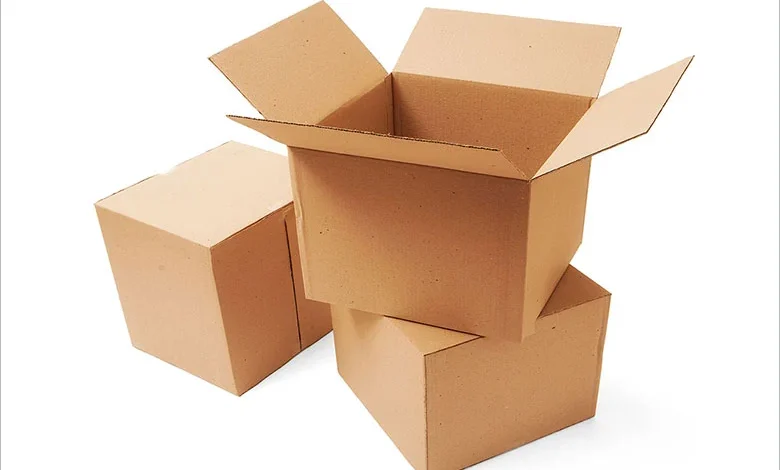Balancing Profitability with Planetary Well-being: Exploring Reusability and Innovation in the Packaging Industry

The packaging business is undergoing a revolutionary shift in the current climate of increased environmental awareness, driven by the urgent need for sustainability. This change is supported by the recent Buying Green Report, which was launched in connection with Earth Day and provides pertinent statistics that highlight how urgent the need for change is.
Amidst concerns over the escalating impact of single-use plastics, innovative solutions championed by companies like Trivium Packaging, Vytal, TerraCycle, Loop, and Moree are stepping into the limelight—poised to confront these challenges head-on. The report’s findings unveil a remarkable trend: despite a substantial rise in consumer prices due to global inflation, individuals are increasingly inclined to invest in products housed within sustainable packaging. Impressively, 82% of respondents—a four-point increase—express willingness to allocate additional funds for such packaging. This surge extends across time, reflecting an eight-point rise. Particularly, the younger demographic, specifically those aged 18–24, leads the charge, with a remarkable 90% showing willingness.
The inclination towards sustainable choices is firmly rooted in the environmental mindset that consumers are adopting. An impressive two-thirds of individuals now consider themselves environmentally aware, a significant six-point upswing from the previous year. A resounding 63% of consumers are now less likely to patronize products housed in environmentally harmful packaging—as opposed to their behaviors in years past. These intentions resonate in their actions, with 71% of respondents already participating in reusable and refillable activities. Moreover, a staggering 80% express interest in purchasing refillable packaging products to minimize their ecological footprint. Over half of the participants are engaged in actively reducing food and packaging waste—indicative of a growing eco-conscious mindset.
When we zero in on the realm of sustainable packaging, a robust 71% of consumers actively select products based on the sustainability of their packaging. This interest has experienced an upsurge, especially among the younger demographic and those with higher incomes. The desire to make informed decisions is palpable, with 59% of consumers seeking recycling and sustainability information on labels. However, 46% of respondents identify unclear labeling as the primary deterrent to making such purchases.
Jenny Wassenaar, Chief Sustainability Officer at Trivium Packaging, underscores the potential for consumer education: “There’s a major opportunity here to improve consumer understanding of sustainability claims.” She highlights the imperative of not only embedding sustainability within business practices but also educating consumers about their choices and their impact.
The data presented by the Buying Green Report makes a compelling case for sustainable packaging. It’s a decision that aligns not only with environmental concerns but also with business sense. Trivium Packaging CEO Michael Mapes says the significance of consumer-driven change: “It’s clear that consumers are paving the way for a sustainable future, and businesses need to listen.” This steadfast demand, impervious to external economic factors, underscores the shift towards more eco-friendly options, reflecting consumers’ broader focus on the planet’s welfare.
The Buying Green Report is anchored in insights from over 9,000 consumers across Europe, North America, and South America. This expansive reach paints a comprehensive picture of consumer sentiments and behaviors regarding sustainable packaging in a dynamic world. The fourth edition of this annual report provides global insights, thoughtfully segmented by age, income, and region.
Amidst this evolving landscape, Germany emerges as a vanguard, blazing a trail with its pioneering packaging law set to take effect. This legislation mandates that caterers offer reusable alternatives for food and beverages, thereby leveling the playing field with single-use counterparts. Tim Breker, Founder of Vytal, views this legal shift as an opportunity for the catering industry to champion sustainability. “The mandatory reusable offer for to-go and delivery meals is an opportunity…to enhance guest loyalty and advocate for the planet’s health.” This legislative push reshapes accountability, prompting the market to strike a balance between practicality and environmental consciousness.
Tom Szaky, TerraCycle’s CEO and co-founder, succinctly captures the essence of the challenge: “We can’t merely recycle our way out of the garbage crisis.” Leading the charge, Loop—a trailblazing startup—captures the attention of industry giants like P&G and Unilever. This consortium of forward-thinkers envisions a novel approach to packaging ownership, raising a fundamental question: Can the ownership model shift from consumer to producer?
Global players like Procter & Gamble and Unilever orchestrate a paradigm shift by recalibrating their products for the Loop platform. They align aesthetics with environmental responsibility, as Virginie Helias, Vice President and Chief Sustainability Officer at P&G, states: “It addresses a growing expectation from people.” This prompts a pivotal question: Can aesthetics and environmental stewardship harmonize in the realm of packaging?
Global players like Procter & Gamble and Unilever orchestrate a paradigm shift by recalibrating their products for the Loop platform. They align aesthetics with environmental responsibility, as Virginie Helias, Vice President and Chief Sustainability Officer at P&G, states: “It addresses a growing expectation from people.” This prompts a pivotal question: Can aesthetics and environmental stewardship harmonize in the realm of packaging?
Amidst this transformative landscape, the key to achieve hinges on consumer adoption. As efforts to introduce reusable alternatives gain momentum, wins lies in aligning with evolving consumer priorities and habits. The path towards sustainable packaging is paved with innovation, regulatory adjustments, and a collective commitment to waste reduction. Industry leaders, startups, and governing bodies forge alliances, offering a glimpse into a future defined by conscious packaging practices and heightened environmental awareness.
Dejan Mitrovic, CEO, and Clare Brass, Co-founder and Chief Product Officer, both play pivotal roles at Moree, a company specializing in reusable packaging solutions. Moree, in response to the imperative for sustainable packaging, particularly within the realm of reusability and returnability, Mitrovic envisions Moree as not only a pioneer in reusable packaging but also a transformative force within the broader packaging industry. Their aspirations transcend sectors, seeking collaborations with diverse food brands across the culinary spectrum.
Moree’s influence resonates in the market, as Mitrovic explains their approach to reusable packaging, drawing inspiration from history while embracing modern technology. “We’re essentially reintroducing the milk round delivery concept – with reusables with modern technology and tracking capabilities,” he remarks. Moree provides reusable packaging to companies increasingly recognize the viability of reusable packaging, particularly within the realms of “closed-loop” grocery retailers such as the Modern Milkman, that do their own deliveries and collections or B2B food brands, for example, coffee roasters that deliver to offices/coworking spaces.

“Sustainability has been our core value from the start. While profitability is essential, our core driver is creating positive change.”—Dejan Mitrovic
Comparing Moree’s plastic-based packaging to traditional options underscores a pivotal question. Mitrovic adeptly responds, “Our packaging can be used around 300 times and is designed for reusability.” Their life cycle analysis underscores plastic’s sustainability potential when used optimally. Stressing reusability positions Moree’s packaging ahead of single-use plastics or biodegradable alternatives concerning environmental impact.
However, gain is not devoid of challenges. Moree acknowledges the imperative for high customer return rates, a foundational concern within the reusable sector. Their solution involves leveraging technology for tracking and rewarding customers participating in the return process. This symbiotic relationship between company and consumer underpins the economic viability and environmental effectiveness of their model.
The pandemic’s impact on Moree’s trajectory is palpable, with initial hygiene concerns around reusable packaging evolving into a heightened momentum toward sustainability. “As the pandemic subsided, the demand for sustainable solutions increased,” Mitrovic acknowledges. The pandemic serves as a catalyst for environmentally conscious choices, propelling Moree and others toward a more sustainable trajectory.
Within Moree’s culture and values, sustainability emerges as the cornerstone. The team, partners and investors alike share this fundamental commitment. “While profitability is essential, our core driver is creating positive change,” Mitrovic succinctly explains. Moree’s unwavering dedication to sustainability underscores its commitment to the greater good.
Reflecting on their journey, Mitrovic candidly discusses a pivotal decision. He acknowledges the shift from creating a new retail channel alongside reusable packaging to pivoting to a B2B model. This strategic shift allows Moree to streamline efforts and amplify core strengths.
Moree unveils a dynamic company shaping the landscape of reusable packaging. With an unwavering focus on sustainability, innovation, and practicality, Moree stands as a testament to the transformative power of forward-thinking solutions. As the world grapples with environmental challenges, Moree offers a beacon of hope, reminding us that the path to a more sustainable future lies in reimagining even the most fundamental aspects of the industry.
The packaging industry stands at a pivotal juncture, driven by the imperative to address environmental concerns. Visionaries, global brands, and legislative changes converge to reshape packaging’s trajectory, embracing reusability and sustainability. Moree’s journey underscores the transformative potential of reusable packaging, with its commitment to sustainability setting a precedent for industry-wide change. As we navigate this new era, collaboration, innovation, and consumer adoption stand as guiding pillars, steering us towards a future defined by conscious packaging practices and a healthier planet.
The recent Buying Green Report underscores that this transformation is not only timely but also essential. As consumers increasingly align themselves with sustainable choices, businesses must heed the clarion call for change. The data showcases an evolving landscape where environmental concerns outweigh economic factors, and the packaging industry must adapt to this paradigm shift. The report’s insights, drawn from a diverse demographic across Europe, North America, and South America, reveal a resolute demand for sustainable packaging. The collaborative efforts of industry leaders, startups, and governing bodies must continue to harness this momentum, ensuring a more conscious and sustainable future for all.



